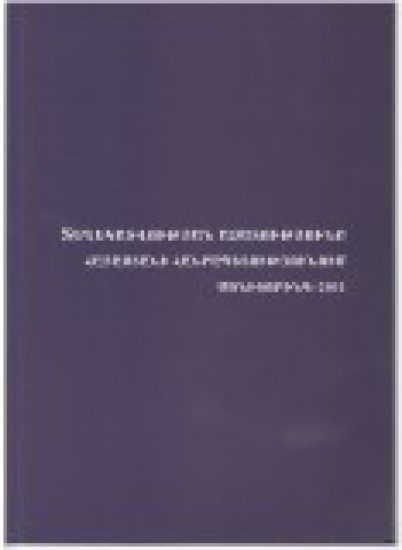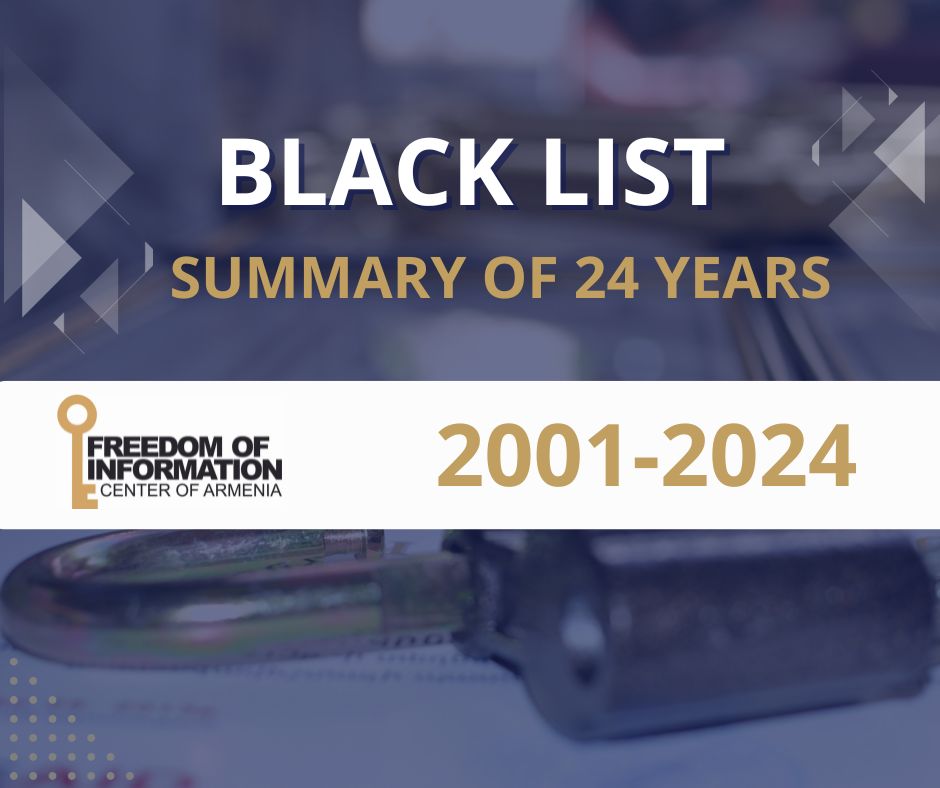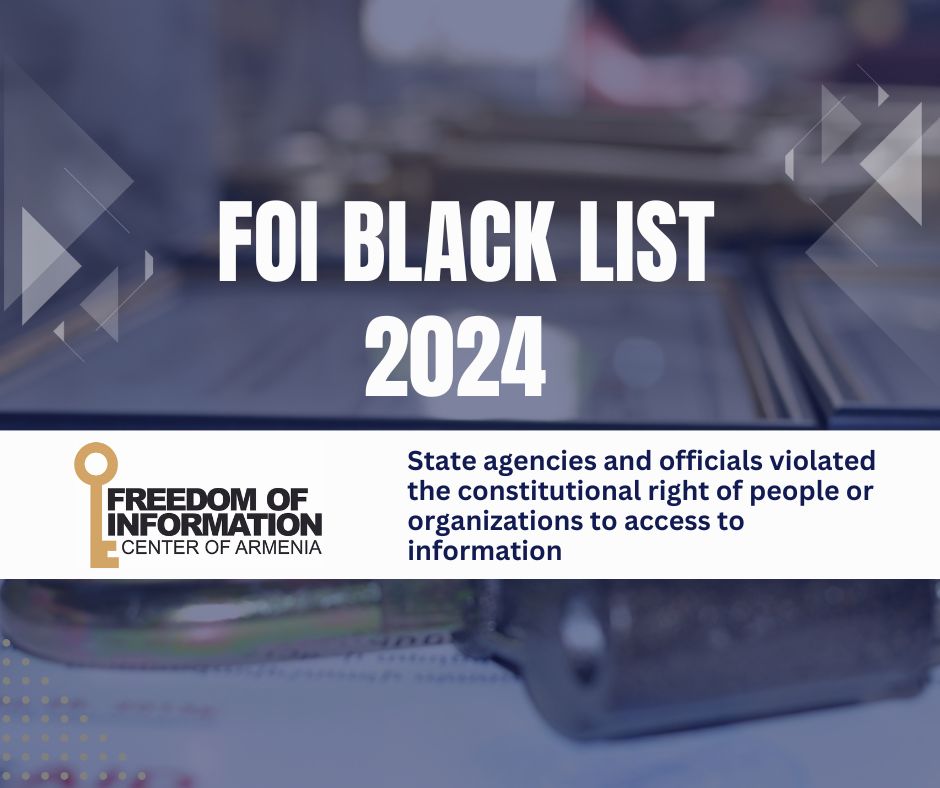On 14 December, 2011 in “Hayeli’ (“Mirror”) club Freedom of Information Center of Armenia presented publicly the “Freedom of Information in the Republic of Armenia 2011” monitoring and the book summarizing its results.
During the event head of the Department of Democratization in the OSCE Yerevan Office Oliver McCoy made an opening speech. He emphasized the importance of information accessibility for effective governance and for keeping the authorities accountable.
Head of “Freedom of Information Implementation in the Republic of Armenia” project, FOICA expert Liana Doydoyan added that the “Law on Freedom of Information” has been in force for already 8 years. In the recent years quite many changes and positive results happened in the practice of implementing the FOI legislation. Hence, now there is a need to find out how information holders comply with the requirements of the Law.
FOICA lawyer Gevorg Hayrapetyan stated that the monitoring allowed the FOICA to define the present state of freedom of information in Armenia, and bring up the present issues.
So, in the framework of the monitoring, in May-June, 2011 ten requestors sent 250 information requests to 50 information holders – 10 central state governance bodies, 10 regional administrations, 10 city municipalities, 10 village municipalities, and 10 organizations of public importance.
The majority of the 250 information requests – 173 were sent in written by post. 37 information requests were sent electronically to official e-mail addresses, and 40 information requests were presented orally through phone calls. Five information requests were sent to each information holder.
56% of the 250 information requests received full responses. However, on the other hand, the outcomes of the monitoring show that unanswered information requests are still a big problem, which were 30% of the total information requests. This is in the case when the total number of refusals was only 8, only one of which was a legal refusal. It appears that in all the cases, when the body did not wish to provide information, it preferred to simply leave the information request unanswered, rather than refuse it in writing.
From 50 information holders included in the monitoring village municipality of Oshakan showed the best results. It gave on-time full responses to the four written and one oral information requests (see http://www.givemeinfo.am/hy/entity/85/).
As for negative results, they were received from the village municipality of Aygedzor, “Clinical Hospital” CJSC and “Catherine Group” Co. Ltd. These information holders left unanswered five information requests each.
From 50 bodies regional administrations showed the best results, and organizations of public importance showed the worst results. Regional administrations gave full responses to 74% of 50 information requests, whereas organizations of public importance gave full responses only to 44% of 50 information requests, leaving around as much unanswered.
It is worth mentioning that the good records of regional administrations are also related to the fact that representatives from regional administrations had severally participated in the FOI trainings organized by Freedom of Information Center of Armenia.
This monitoring allowed to fact that the issues present in the freedom of information sphere are many and diverse. As a first issue one may mention the absence of a culture to work openly among officials. The majority of them is not yet used to mandatorily responding to public demands and does not perceive providing information as one of his basic responsibilities. Although unjustified refusals are not relatively many, still a basis for refusal can be the absence of a government defined order for providing information. This reason is used by those officials who do not wish to provide the requested information. So, during this monitoring ARM State Revenue Committee refused the lawyers, written request, stating as a basis for refusal that the ARM Government had not adopted an order for recording, classifying and keeping information, thus, the Committee could not provide the requested information.
Another issue is that of responding information requests on time. The results of the monitoring showed that from 161 information requests that were answered only 70.2% (113 information requests) was answered in the time period defined by the ARM “Law on Freedom of Information”, and 29.8% (46 information requests) received late responses. The analysis of the information requests showed that the five-day period defined by the Law is realistic for providing information, and if desired, it will be quite easy to respond within that deadline. And the opposite – if the body and its head do not have a political will and relevant knowledge, the information always arrives late without justification, the responses are incomplete, or the information requests are simply overlooked, considering answering them not a responsibility but extra work. The results of the monitoring may be viewed in the “FOI Analyses” section of www.givemeinfo.am and www.foi.am websites.
The publication of the book was cofunded by OSCE Yerevan Office and USAID Armenia.








